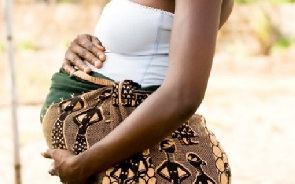The 2017 Ghana Maternal Health Survey indicates a correlation between higher incomes and education and the likelihood of choosing a safe abortion in the event such an option becomes necessary.
Though because of stigmatisation, figures are believed to be under-reported, in the five years preceding the 2017 survey, 76% of pregnancies resulted in a live birth, 2% ended in a stillbirth, 12% ended in a miscarriage, and 10% ended in an abortion.
These are above the estimates from the World Health Organization, which noted that there are 28 abortions per 1,000 women each year in West Africa as of 2011.
One out of five Ghanaian women aged 15 to 49 have had an abortion, but this figure reduces for women with no education.
Women with no education are less likely to have an abortion, with more than 12% women with more education (16%-24%) having abortion.
Economic factors also come into play, with only 6% of women in the lowest of the five tiers of wealth being less likely to have had an abortion than those in higher wealth quintiles, who range from 16%-27%.
Though the knowledge and idea of abortion may be taken for granted by some, 25% of the 25,062 eligible women surveyed that had never had an abortion did not know what an abortion was.
The survey indicated that women in the northern part of Ghana are less likely to know what an abortion is than women in the coastal or middle zones. Some 17% of women surveyed in northern Ghana had no idea what an abortion was. This same figure was about 3.5% for women in the middle and coastal areas of Ghana.
Having knowledge of the abortion Having some knowledge about the abortions is one thing but getting access to one is a tall order for some. Among women who have never had an abortion but are at least aware of the option, only one in five of them would be able to get an abortion and just over half of this section actually know of a place that would provide such services.
Since of 1985, Ghana has permitted abortions in cases of rape, incest, the rape of a woman with learning disabilities, if the life or health of the woman is in danger or if there is the risk of foetal abnormality.
The Ghana Health Service and the Ministry of Health put in place protocols for the provision of safe abortion services in 2006, outlining the components of comprehensive abortion.
They also called for the expansion of the base of health providers to perform first-trimester abortions.
Despite Ghana’s laws being relatively liberal as compared to other African countries, only 11% of women who have had an abortion or know what abortion is said they were aware abortions were legal in Ghana, though the research did not give the reasons the various women opted for in favour of abortions.
6% women seeking abortion are unaware of legalities
This figure is a small improvement from 2007 where a mere 3% of pregnant women and only 6% of those seeking an abortion were aware of the legal status of abortion.
Observers have noted that this fact accounts for why there are so many unsafe abortions in Ghana. The Guttmacher Institute indicates that almost half of Ghana’s abortions, 45%, remain unsafe, with women in rural areas being more at risk of unsafe abortions.
The Ghana Maternal Health Survey further revealed that women in urban areas are more likely to be aware of the fact abortions are legal (14%) than those in rural areas (8%).
This is a marker for the educational level of the respondents as the survey noted that knowledge of the legality of abortion generally increased with education; with a steep rise between women with no or primary or middle school education (4%-8%) and women with secondary education (18%) , and again between women with secondary (18%) and more than secondary education (38%).
General News of Tuesday, 22 May 2018
Source: abusuafmonline.com













